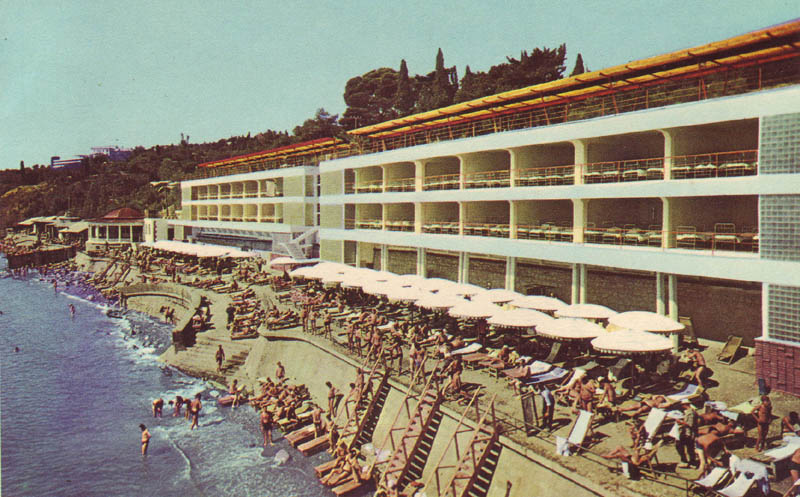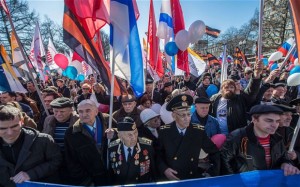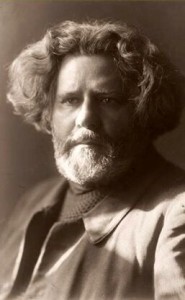The First and Last Resort: A Look Back at Russia’s Annexation of Crimea
 A resort for some, a headache for others. Just what is Crimea on today's cognitive map.
A resort for some, a headache for others. Just what is Crimea on today's cognitive map.
Had one hinted to the average Soviet citizen in 1975 – the thick of Soviet stagnation and bleakness – that a sovereign Russia would be pitted against the West over the small peninsula of Crimea, one would have been called insane or reported to the police. A noteworthy exception to this would be science fiction nerds, overtaken by dissident writer Vasiliy Aksyonov’s 1979 fantastical opus, Island of Crimea, which predicts World War III spurring from a Russian pillage of the landmass. For older citizens of the former Soviet Union, Crimea is a testament to a dying memory of their youth. The pebbly beaches, the mossy green water, and the total disinhibition of summer revelries there elicits smiles on the faces of most. Many a family, such as my own, were sparked on its shores. The “return of Crimea into its parents’ house” is accordingly touted by most Russians. The world, however, sees a different Crimea – a domain oppressively captured by a terrible dictator. They see the multitude of crises that have stricken Crimea since the annexation by Russia. They see the capital drain. Two years after Putin’s outlandish roque, we are in need of some dissonance adjustment.
For a year, Putin was caught in a game of complete deniability with the West, who accused him of taking over the peninsula with force. The Russian president had a stake in doing so, as Crimea houses Russia’s largest naval port, which, considering Ukraine’s sudden pivot west, could have been endangered. Putin claimed that he had only sent in troops upon the completion of a fair-but-unrecognized referendum asking Crimean residents whether they approved joining Russia. Russians seemed to approve, which was evidenced by a 20% surge of Putin’s popularity. Crimeans were left untouched for this period. Then, during a press conference in early 2015, Putin laid his cards on the table, openly admitting to occupying Crimea in a custodial fashion in time of crisis. Russia, already beset by sanctions, was punished even harder by the West. Putin’s popularity soared up to 90 percent. This opened a lucrative window for Putin, who used this action to mobilize Russians and paint the West as blatantly Russophobic, and not just anti-Putin.

The public was successfully baited into this sentiment. Never in Russian history has there been such a ruler to accrue such a popularity from a a people renowned for their predisposition to voice their displeasure with rulers. Putin, legitimized by a sense of hyper-approval from his own people, began to use this event as one of his largest selling points. Long in search of a binding national idea, Putin found it. Thus began the sacrilegious glossing of Crimea. The news outlets uniformly began to cover Crimea’s natural wonders and rich history since the Greek times. Kremlin spin doctors began to claim dubious truths about Prince Vladimir of Kiev actually being born in Crimea, how Crimea – and not Kiev – was the historic cradle of Russian civilization. It was a totally unmotivated comparison that they were making at that point in time. In the wake of crippling sanctions, Russians began returning to Crimea instead of their usual spots in Turkey and Egypt – they say, out of strong and sudden nationalistic spirit and out to spite the West, which is seen as out on a rampage against Russia. In the aftermath of Turkish downing of a Russian jet, critics allege that Putin’s ratcheting up of tensions with Turkey is in part to incite Russians to take their holiday’s in Crimea’s friendlier waters.
The realities in Crimea itself are more puzzling. Once Putin’s ruse was taken down, polling agencies from all over the world rushed to Crimea to test the degree of occupation within Crimea. The results were astounding: Putin’s approval rating was above a 2/3 majority. It should come at no great surprise – Crimea, a Russian-speaking region, part of Ukraine since only 1959, was taken out of a crisis-ridden poor Ukraine and into a richer country. While this did come at the cost of civil liberties, it seems as if Crimeans did not care all that much. In the meantime, Ukraine was forced to sit on two chairs: claiming Crimea was still part of Ukraine, and saying Crimea was a Russian object and would be treated as enemy territory. These were not saber-rattling words, these threats were manifested in real actions.

In 2014 and 2015, Ukraine has gradually begun to disjoint Crimea, which it still claims as its territory, from the Ukrainian infrastructure. The first step came in the days following annexation, which was the severing of all financial connections that Crimea had with Ukraine. Along with that, 2.3 million Crimeans were relieved of all their bank savings, pensions, and salaries. Just as that tension began to subside, Ukraine decided to cut off Crimea from the Ukrainian energy grid. While Russia did throw a couple of billion at the problem to resolve the issue and connect all Crimeans to Russia’s energy grid through the Black Sea, the situation shows a gradual, if not inevitable complicity in Ukraine’s release of Crimea.
Crimeans themselves have been caught in this crossfire, and are perhaps the most confused about it. Engendered by nationalist spirits, they feel ready to integrate into Russia. Except Russia sees them as lesser Russians that are still partially Ukrainian. Spirited by the introduction of more capital and greater investment into the area, they feel ready to get to work, but the financial limbo they are in makes operating businesses there difficult, even futile. They are prepared to act in the scope of Russia’s laws, but Russia does not seem too seized to implement its laws in the best faith. That, paired with the ineffectuality of Putin’s pawn in Crimea, Sergei Aksyonov (no relation to the writer), meant that Crimeans are increasingly discontent with their new countrymen. They still, by all measures of polling, do not desire to reenter Ukraine, but their Russian vacation is bringing back a shoddy return on investment. This has certainly penetrated some Russian circles as well, who are asking what the “real cost” of the annexation was, if they can no longer get the same visas, travel as freely, get the same salaries, and spend the same amounts of money. Nonetheless, most Russians still believe that the benefits truly outweigh the costs.

The retrospection we have been offered so far is that Crimea has become a moot, awkward point in the debate between the West and Russia. Crimea poses little worth to Ukraine, and an indelible worth to Russia. To Putin, Crimea is an insurance policy against the West and his own people, who have seen to what extent he will go to protect his immunity from powers that might challenge his authority. The West appears to have no-contest in this situation, as no serious action from that group of countries has been observed with regards to Ukraine. Ukraine does indeed try to raise its voice about the matter, but Russia’s resistance to these jabs will most likely palliate Ukraine in the near future. The awkward memories that modern Russians will have about Crimea are such an unfortunate shift from the warm and fond memories carried by their disillusioned parents.
